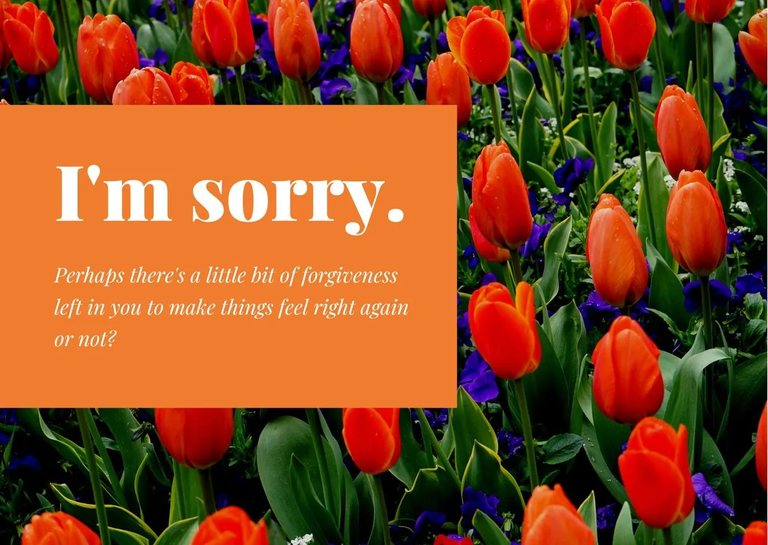I learned early on in life in Lagos how important it is to treat people with dignity and respect. I have always been reminded by my parents and instructors to be careful not to upset someone by accident. Even when my words or deeds upset someone, I've come to learn that an apology isn't always required, especially as I've grown older.
As an example, I was asked to have supper at the home of my friend Bukola's family last year. I was happy to go, and the evening was great. While we were winding down our jollof rice and chicken dinner, Chibuzor, Bukola's younger brother, began to broach the subject of politics. He was griping about the state governor, claiming that he was failing to do more to assist low-income families in our town.
I listened courteously but interrupted once to say, "Actually, Chibuzor, I believe the governor recently launched a new program to assist low-income families with their children's school fees." Perhaps your family hasn't seen any benefits just yet. I was merely attempting to contribute knowledge to the topic, not offend Chibuzor in any way.
However, he raised his voice and said furiously, "What would you know about straining to pay fees? Your family has lots of money!" I was astonished. How could he make assumptions about my family's finances? His parents instantly rebuked him for the disrespectful outburst. Later, Bukola informed me. Chibuzor wanted me to apologize for the statement I made over supper. But I did not believe I needed to apologize. I was participating constructively in the conversation with facts.
I could not control how Chibuzor received my comments or the incorrect conclusions he formed about me. The only one who behaved disrespectfully in the scenario was Chibuzor when he raised his voice and insulted me. This event taught me that while it is good to apologize when I sincerely hurt someone, occasionally others get angered over harmless words. Their displeasure does not necessarily indicate I did something wrong. I recognize that in delicate talks, especially about matters like politics, tensions are high.
Not everyone controls frustration effectively. Moving ahead, I will continue carefully picking my comments while standing fast, knowing that severe overreactions do not necessarily need an apology. As long as I debate topics politely using the correct facts, how others interpret my respectful comments is up to them. Knowing this will enable me to comfortably communicate with others while avoiding unneeded apologies.
Another occasion on which I opted not to apologize was just a few months ago, when my uncle Emeka visited our family. My uncle is quite conventional in his ideas and regularly makes comments about how males are the head of the family while women should focus on cooking, cleaning, and raising children. His opinions made me uncomfortable, but I always held my tongue around him to maintain peace. However, on Uncle Emeka’s previous visit, he made a statement about how women these days are too vocal and spend too much time chasing jobs rather than learning how to care for their spouses.
I eventually stood out gently and said, “Uncle Emeka, I disagree. Women are equally as clever and talented as men when it comes to employment and leadership responsibilities. Many women in our family work hard to financially provide for their families alongside their husbands. They raise great children too."
My uncle raised his voice in rage, claiming I was too young and ignorant to correct an adult about such topics. My parents rebuked him for his rude tone toward me, their daughter. But they agreed I should have kept quiet around him rather than challenging his conventional values. While I realize my parents want me to avoid disagreements with relatives, I disagree that I should apologize to Uncle Emeka. I did not raise my voice or offend him. I quietly provided my current perspective to refute his antiquated beliefs on women’s duties. Apologizing would convey the sense that I regret expressing truths about gender equality, which I do not. Elders are not always correct, no matter how much they expect young people’s compliance and quiet.
I adore my Nigerian culture, yet cultural norms need updating throughout time for civilizations to evolve in beneficial ways. These experiences have reminded me that while my parents educated me to be courteous and avoid offending others wherever possible, oftentimes an apology is not necessary or warranted after presenting an opposite perspective.
As long as I express my counterarguments in a nice, intelligent manner rather than throwing insults, I am confident in standing by my rational beliefs. My friends and relatives will have to realize that while I avoid purposefully offending them, I am prepared to calmly disagree at times without feeling guilt or remorse when justified. This serves me considerably better than always apologizing, even when I have caused no actual harm save for hurting someone’s unjustifiable pride or archaic sensitivities. I will be polite to everybody, but remorseful only when a real acknowledgment of wrongdoing is actually demanded of me.

Upvoted. Thank You for sending some of your rewards to @null. Read my last posts to make sure that BLURT burning is profitable for you. Before using this bot please make sure your account has at least 100 BP. Get more BLURT:
@ mariuszkarowski/how-to-get-automatic-upvote-from-my-accounts@ blurtbooster/blurt-booster-introduction-rules-and-guidelines-1699999662965@ nalexadre/blurt-nexus-creating-an-affiliate-account-1700008765859@ kryptodenno - win BLURT POWER delegation@ ctime/burn-bot-liquid-blurt